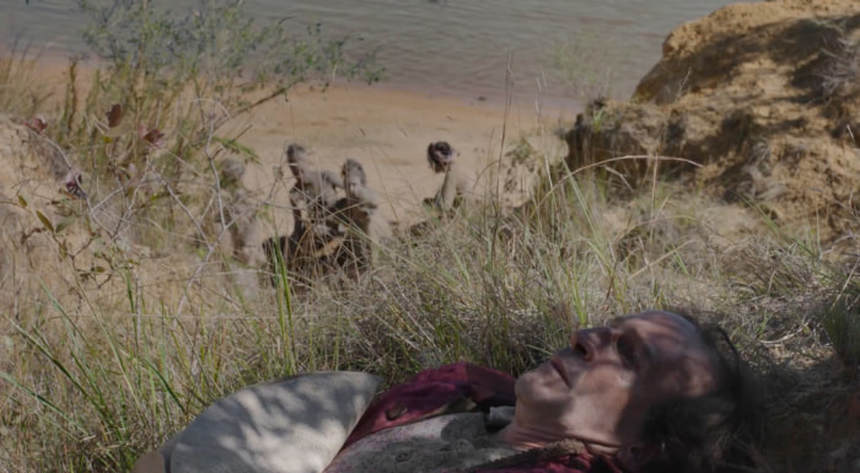|
Evoking the viewer's inquisitive nature throughout its 120 minute running time, Lucrecia Martel's Zama is a beguiling, multi-layered character study of Don Diego de Zama, a Spanish officer, who awaits his transfer to Buenos Aires from recently settled Asunción. Offering no simplistic or didactic assertions, Zama welcomes the observant eye, displaying the story of a man whose virtuous pursuits and sense of worth are slowly degraded and deflowered by the harsh realities of authoritarian order, a slowly tightening vice that contains and restricts his own free will and personal freedom. An intentionally tedious journey through the monotonous life of a magistrate, Zama follows this proud officer of the crown as he is slowly beaten down by the sense of stagnation, forcefully held in a state of submission by the monarch and power structures which it empowers. He is a character who only wishes to be transferred back to his home, yet with each passing Governor comes new orders and various decrees, each of which holds this character hostage, slowly and emphatically breaking the spirit of this man whose once virtuous nature and blind service to the crown has been left shattered, broken under the tight grip of authoritarianism. Set against the backdrop of colonization and European imperialism , Zama is a powerful and nuanced portrait of the tension which exists between human freedom and the constrictions often placed on this by authority, juxtaposing Zama's plight with that of the indigenous people, while raising profound questions about what it means to be free. The opening scene of the film, one in which Zama stands proudly and confidently on the shores of this newly discovered land, offers a glimpse of Zama's internal pride in his service to the crown. In this sequence Zama's body language exudes a sense of purpose, with his treatment of the indigenous people being pejorative in nature, viewing them as savages who must be properly educated. While this scene sets the stage, Martel's film quickly subverts one's typical expectations with such a subject matter, as the viewer soon realizes how fleeting this magistrate's sense of virtue will become. Zama's career-minded pursuits are merely for the profit of others and his bureaucratically role slowly begins to break down his inner sense of self and individuality, detracting him, even imprisoning him from his own personal ambitions related to fatherhood and family. The virtuous sense of "service" is emphatically shattered by the end of Martel's Zama, with the magistrate himself imprisoned by his service to those who wield authority, unable to even live freely. Zama reveals not only the vapid nature of materialist pursuits, with the magistrate's purpose being merely to serve the material desires of the crown, but the restrictive, oppressive nature which authority often has on personal freedom, as Don Diego de Zama begins to discover where he finds his true virtue, not in materialist pursuits or service to others but in his love and empathy he has for his family. Lucrecia Martel's Zama is a challenging film that is intricate and complex in its deconstruction of the confliction which exists between individual freedom and public service, recognizing the intrinsic constraints which any type of power structure or authority places on the individual's sense of free will.
0 Comments
Leave a Reply. |
AuthorLove of all things cinema brought me here. Archives
June 2023
|

 RSS Feed
RSS Feed
